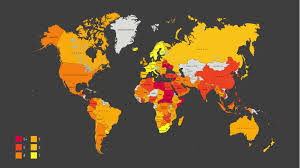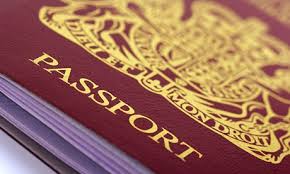The United States Citizenship and Immigration Services (USCIS) issues visas to diplomats and international organization officers and employees that enter the United States to perfom official duties on behalf of their governments or international organizations. These visas are known as the A and G visas.

The A visas are are of three types — A-1, A-2 and A-3 visas. A-1 and A-2s are issued to government officials and their family members while A-3s are issued to their personal employees, attendants or domestic workers.
To qualify for an A-1 visa, the diplomat must be a head of state or government; or a government officer that serves at a foreign embassy or consulate; or a cabinet member coming for official activities; or a European Union or African Union delegation representative.
An immediate family member can also be granted the visa. Immediate family members are the spouses and unmarried sons and daughters of any age that are members of his household and those that regularly reside in the household with benefits and rights associated with the diplomat, such as official passport or travel and the like. Additonally, any other person related to the diplomat or his spouse by blood, marriage or adoption or a his domestic partner and a relative by blood, marriage or adoption of the domestic partner can be an immediate relative.
To qualify for an A-2 visa, the diplomat must be a full-time government employee entering the United States to work at a foreign embassy or consulate or to perform embassy related duties; or a government officer entering the United States upon a written request of his country to perform official government duties; or a foreign military member stationed at a US military base; or assigned to a foreign embassy or consulate in the United States; or a European Union or African Union delegation representative, and their immediate family members.
To qualify for an A-3 visa, the personal employee, attendant, domestic worker or servant must prove that he is qualified for the job that he is coming to the United States to do and that the wage offered him is self-supporting and comparable to that offered for the same employment in the United States.

The USCIS issues G visas to international organization representatives and their family members, and are of four types, which are G-1, G-2, G-3 and G-4. G-1 visas are issued to permanent mission members of a recognized government entering the United States to serve in an international organization. G-2 visas are issued to representatives of a recognized governmental officer traveling to the United States temporarily to attend meetings of a designated organization. G-3 visas are issued to representatives of non-recognized or non-member governments while G-4 visas are issued to individuals entering the United States to take up appointments into designated international organizations including the United Nations.

Diplomats and international organization visa holders can adjust their statuses to Green Card holders in the United States. To adjust, however, they must waive their diplomatic privileges, immunities and rights and reside and work in the United States just like any other permanent resident. The adjustment is done in one of three ways:
The first is through qualifying relatives. Here, the diplomat or international government officer uses a family or employment opportunity to adjust his status from diplomat or international orgnization officer to a Green Card holder.
The second is adjustment under what is known as a Special Green Card. The diplomat or international orgnization officer qualifies for this visa if he fails to maintain his diplomatic status and is unable to return to his home country due to compelling reasons. He must also demonstrate that he has good moral character, and admissible to the United States. The officer’s family members can also enter as dependents. This adjustment type is, historically, very rare, and often tied to promoting the United States national interest. In fact, only 50 of these visas are granted yearly.

There is a third adjustment opportunity that is specifically open to only former international organization employees. To qualify, the employee must have lived in the United States on the G visa for at least 15 years before retirement, and must apply for the visa in no later than six months after retirement. The officer’s employees as well as spouses of deceased international organization officers may independently qualify for the Green Card, and if qualified, must apply for the visa no later than six months after the death of the officer. Unmarried sons and daughters of current or former international organization officers or employees are also independently eligible for the Green Card if they have lived in the United States on a G visa for at least seven years before ages five and twenty-one and apply for the visa before they are twenty-five years old.
The information in this blog is not intended to be a legal advice to the reader. For more information and legal assistance with adjusting from a diplomatic or international organization visa to a Green card status, contact an attorney at Swaray Law Office. We have adjusted the statuses of many dipolmats and international organization officers from around the world serving in the United States.
















